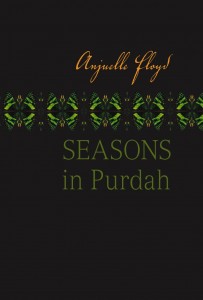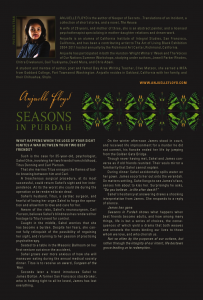What would you do if the loss of your sight ignited a war between you two best friends?
This is the case for 35-year-old, psychologist, Sahel Ohin, involving her two friends from childhood, Titus Denning and Carl Pierson.
The surgery that could return Sahel’s sight might also kill her.
Sahel’s husband, Titus, a cardiac surgeon, fears the latter.
Sahel’s neurosurgeon, Carl Pierson, believes Sahel’s blindness has rendered her hostage to Titus.
On the first night out since her blindness Sahel meets James Bolton, a former San Francisco stockbroker.
Though never having met they converse as if old friends.
The winter afternoon that Sahel attempted suicide, James received life imprisonment for murder, and his fiancée leapt from the Golden Gate Bridge.
When during dinner Sahel accidentally knocks over her glass of water and wets her gown James escorts her out onto the verandah.
Against the backdrop of Sahel’s husband, Titus, inside the ballroom and receiving an award, James asks, “Do you believe…in life after death?”
Seasons in Purdah shows what happens when best friends become adults, and how, among many things, life is but a series of choices, the consequences of which yield a drama that both weaves and unravels the knots binding us to those we cherish and who love us.
___________________________________________________________________________________________________________________
To see how Sahel sets out to address her dilemma click here to begin reading Seasons in Purdah (scheduled for release in 2012) at 10-Day Book Club, where membership is free and writers become an open book.
I will be entertaining reading comments from readers at 10-Day Book Club until October 23rd, 2011.
You can also begin reading Seasons in Purdah @ SCRIBD.



Sounds like a riveting novel. I did lose vision in my left eye for a year. It was a frightening, harrowing experience. Did not find romance but I did find friendship and adaptation of limitations of only having sight in one eye. Can’t even begin to tell you the many times I tripped, fell or nearly got run over by buses and taxis. However I had retina surgery last year and the vision was restored. It will never be 100% but at least I can see. But even partial vision loss gave me a new found empathy for the visually impaired. I still have problems with my eyesight so I drink in every picture, nuances of weather, a treasured book never knowing if one day all will be a blurred shade of grey.
DeBorah Ann Palmer´s last blog post ..Anticipation: An Alternate Universe filled with Delusion of Grandeur at the County Fair of the State Asylum
I’m glad you find the synopsis interesting. The relationship we humans have with our sight, particularly those of us here in the United States, is something of a phenomenon. Even the writing of this book proved challenging. How does one engage the reader with the experience of a person who has lost her sight? Obviously you have to build on the protagonist’s other senses. But how to do that in a way that entertains the reader?
And then there is the spiritual aspect of sight. What does it mean to see? And how does what we feel influence what we see and what we are able to see?
All of this and more I considered in the writing of this book, the rough draft of which I wrote a nearly a decade ago in November 2001.
During the 10 year of writing and refining “Seasons in Purdah, I have gained much sight and insight in what it takes to become a writer and of myself as a person struggling to gain greater awareness of myself and what I bring to each situation I enter.
Thanks so much for your continued visits and for also taking the time to leave such stirring and heartfelt remarks that reveal more of who you are as a lover of literary art and a person.
I find all of your posts insightful and engaging. For reasons I previously related this particular plot spoke to me right away. Losing your vision even if only half forces you to become more reliant on the other four senses. My hearing became very keen as the human body always tries to compensate for the loss of any one of the five senses. Losing one’s eyesight even temporarily means a loss of independence and a reliance on trusted friends and family. Any type of disability whether permanent or temporary presents a challenge not just physically but spiritually. I appreciate what health I have now because as one ages often disability becomes reality even if it is not our expectation.
DeBorah Ann Palmer´s last blog post ..Anticipation: An Alternate Universe filled with Delusion of Grandeur at the County Fair of the State Asylum
What you so eloquently describe is how illness becomes a tool, if used, for spiritual growth. Much like the body works in service of the evolution of our soul, our illnesses, and bodily sensations, even the compensation of one or more physical sense(s) in the absence of one or another, helps become more away of what truly is self and what that surrounds us and that which can influence us, but is not of our essence.
These comprise some of the continuing themes reflected in all my writings.
It warms my heart that the dilemma faced by my protagonist in Seasons in Purdah has so engaged you.
I can’t wait to hear your thoughts should you decide to read the story.
Peace and blessings.